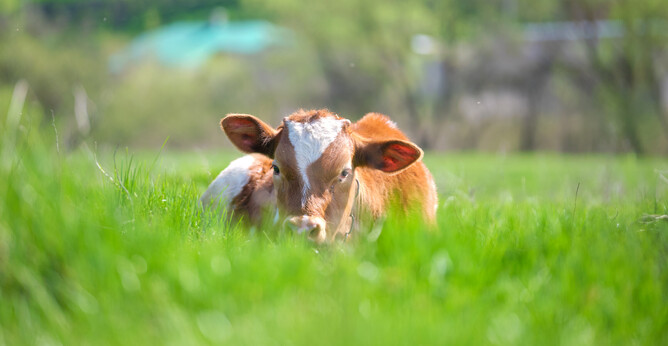Every summer we see a few cases of thiamine (vitamin B1) deficiency in weaned calves.
Thiamine is made by the bacteria in the rumen. If the bacterial balance is disturbed and there is a decrease in the bacteria that make thiamine and an increase in the bacteria that break down thiamine (‘thiaminases’), then there can be a deficiency.
Bacterial balance can be disturbed by diet change, plant sources and grazing on soil with high sulphur levels (sulphur inhibits the production of thiamine).
Deficiency is often seen when calves are moved from stalky to lush, green pasture. A high worm burden can also lead to deficiency, as they impair nutrient absorption, and levamisole toxicity can also lead to delayed thiamine deficiency.
Thiamine plays a role in carbohydrate metabolism and energy supply. It is not to be confused with Vitamin B12, which is crucial for growth, production and appetite stimulation.
Symptoms
Symptoms are usually neurological, such as
tremors or seizures,
depression,
wandering,
wobbliness.
Mild cases can be seen as reduced appetite and separation from the mob. Calves may become blind, or recumbent and have an outstretched neck (‘star gazing’) posture.
Diagnosis is based on clinical signs, or on post-mortem, which will show the brain glowing under UV light due to the damage.
Treatment and outlook
If treated early, most animals can make a full recovery. Treatment involves supplementing thiamine as well as supportive care and preventing permanent brain damage.
Prevention includes avoiding sudden diet change (move stock on to high quality feed slowly and provide lots of fibre) and accurate drench doses. Some farms require preventative drenches if they see outbreaks each season.

